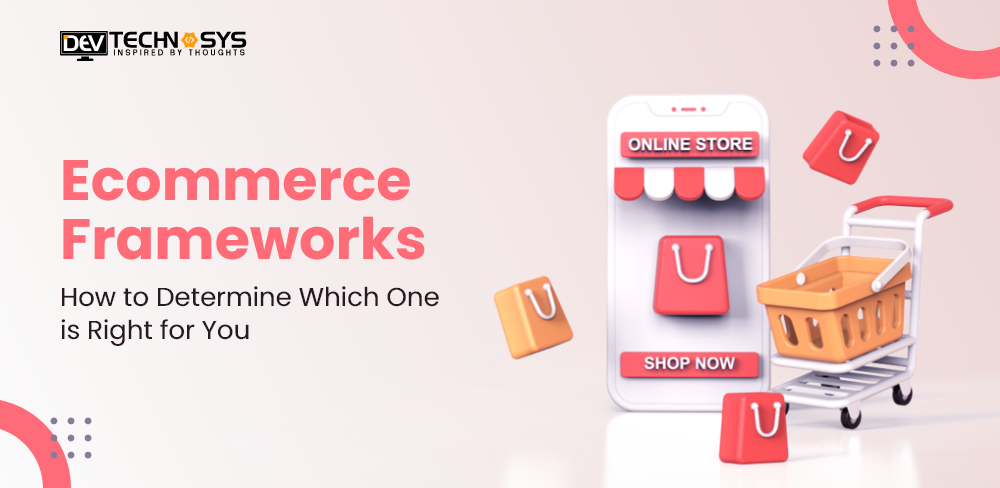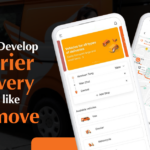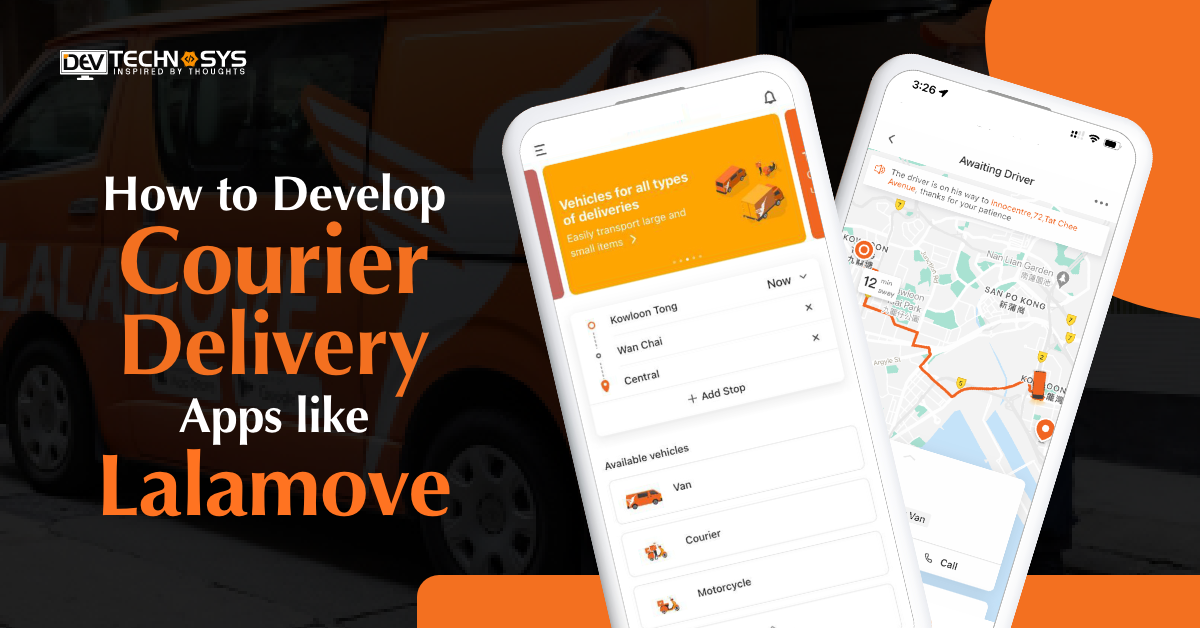E-commerce development is gaining immense popularity these days. eCommerce web development provides a significant infrastructure to businesses through user engagement, customer retention, and frequent application of new trends and technology.
If you want to expand your business with eCommerce web development but need to be aware of certain things, then you should know all about eCommerce development to avoid confusion and mismanagement in business plans.
However, when it comes to adapting eCommerce development, choosing the best eCommerce frameworks is the most necessary aspect you must know.
The significance of the e-commerce frameworks in development can significantly impact the productivity, functionality, and speed of a website.
So if you’re one of the people about to develop an excellent eCommerce website, you must be sure to read this blog until the end.
This blog has eight best e-commerce frameworks that will help you gain excellent customers with prominent user engagement on your eCommerce website.
Table of Contents
What is an E-commerce Framework?
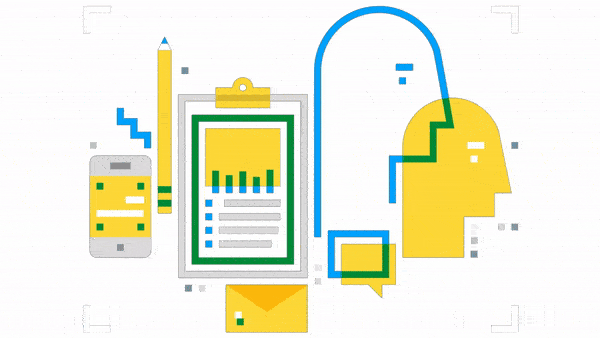
The specific type of programming you’re utilizing to build an eCommerce app or website is an e-commerce framework.
For instance, BigCommerce is a SaaS platform, whereas the e-commerce program Magento employs an open-source architecture. Both make a headless framework possible. There are some core features offered by eCommerce frameworks, including:
- Robust Architectural Functionalities
- Application Maintenance and Support
- Operational Functionality
- Design and Development Compatibility
- Website Infrastructure Functionality
- Analytic Functionality
- Product And Company Viability, etc.
Incredible Market Stats to Look At!
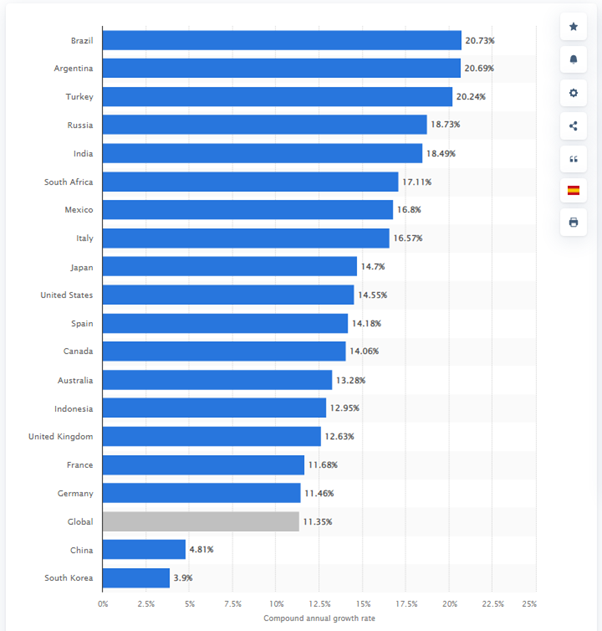
- Brazil will be the leader in the development of retail e-commerce, according to Statista, with a compound annual growth rate of 20.73 percent from 2022 to 2025.
- The global most common internet activity is online purchasing, while some market segments are more famous than everyone else. The CAGR for worldwide retail e-commerce was 11.35 percent during the same period.
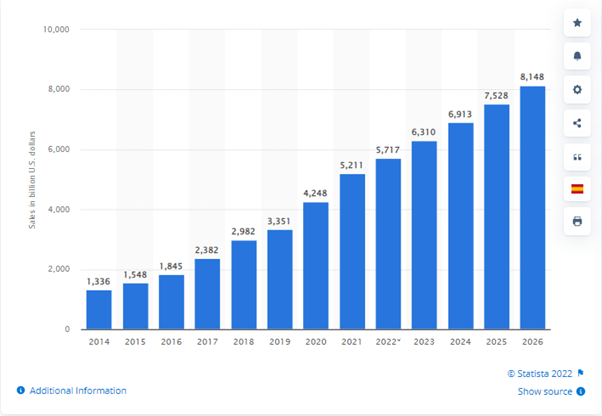
- Statista claims that Global retail e-commerce sales were estimated to be at 5.2 trillion dollars in 2021. Over the following few years, this amount is predicted to increase by 56%, reaching 8.1 trillion dollars by 2026.
- The market for e-commerce software applications was worth an estimated 5.1 US dollars in 2018 and is anticipated to reach 7.4 US dollars in 2023.
- It is not unexpected that the e-commerce software market is growing, given the rapid expansion of e-commerce sales, which are predicted to exceed $7.4 trillion in worldwide retail sales by 2025.
- With a market share of 36.68 percent, WooCommerce was the top e-commerce software platform globally in 2022.
- Woo Themes and Squarespace Online Stores came in second and third, corresponding to 14.49 and 14.42 percent.
Types of Ecommerce Frameworks
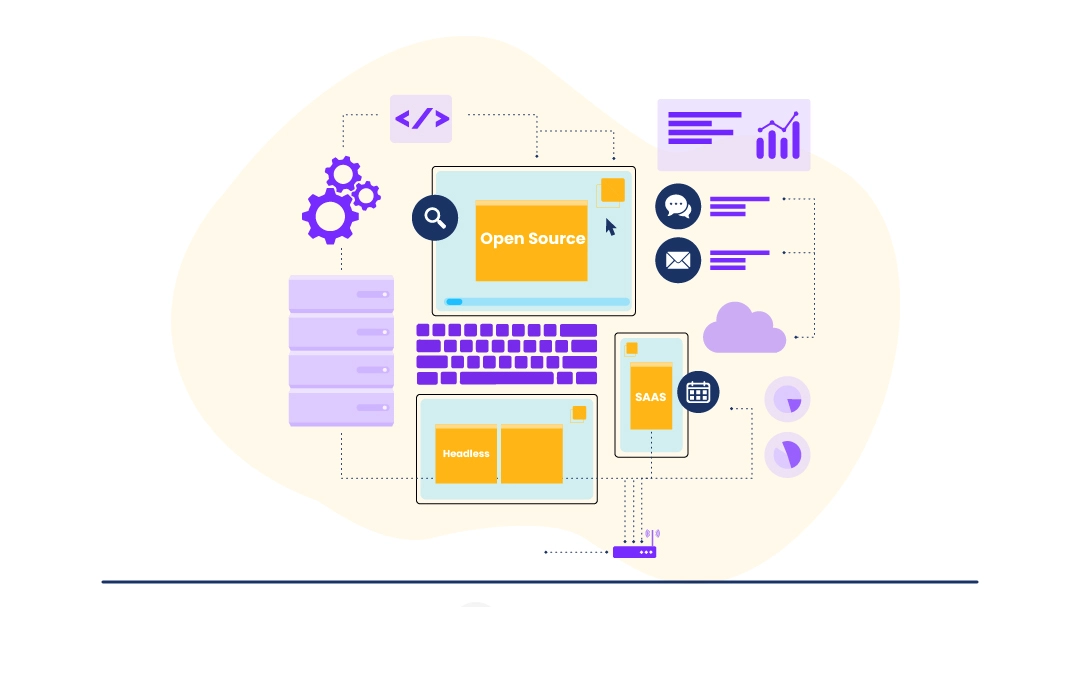
When it comes to the eCommerce framework, you must know that there are three significant types of eCommerce frameworks.
All these three frameworks are different frameworks to each other with different functions and functions. In this section, we have covered all three primary types of eCommerce frameworks, which you must learn about before diving into the top 8 eCommerce frameworks.
1. SaaS Ecommerce Framework
SaaS is “software as a service.” It is vital to know that SaaS is a platform that has advanced functionality with customized sources.
SaaS is the most incredible platform today, trending due to its flexibility with the massive support of APIs and pre-built integrations.
Benefits of SaaS Ecommerce Framework
- You upgrade the real-time features to pursue and enhance the website quite often
- SaaS framework isn’t expensive, yet it offers open-source eCommerce frameworks
- SaaS is quite excellent in improving the market base efficiently.
- SaaS provides adequate security and maintenance within the overall cost.
2. Open-Source Ecommerce Framework
An open-source-commerce framework is software that enables users to approach and modify the source code according to their website convenience.
It is essential to know that it’s the primary software written in PHP that offers a hi-tech custom mode to users.
The benefit of an Open-Source eCommerce Framework
- It offers long-term maintenance of code
- Open-source eCommerce framework has unlimited customization of functions
- It provides the vendors with massive engagement in the community of developers
- Open-source frameworks provide long-run cybersecurity to protect the data from viruses and hackers.
3. Headless Ecommerce Framework
Headless commerce, also called headless eCommerce framework, is a platform architecture that decouples the front end of an e-commerce website from the back end. A user can create some exclusive components of a system to access each element without merging them.
The benefit of Headless Ecommerce Framework
- It is a flexible framework where you can choose the front end of your suitability.
- Headless commerce provides a unique digital experience website which results in more user engagement.
- This can offer you multiple backend and frontend to create an exclusive multi-website.
- It never causes issues in the website’s decoupled front end and back end while the development process protects it.
8 Best Ecommerce Frameworks
There are numerous eCommerce platforms currently available, but the best one for you will depend significantly on your company strategy, range of products, scaling goals, and even internal communications skills. Let’s examine a few of the top 8 and some of their benefits and drawbacks.
1. WooCommerce
WooCommerce is one of WordPress’s most incredible open-source functions, known as the famous self-hosted framework.
WooCommerce is the most chosen framework out of many due to its flexibility with advanced personalized features and functions of the website.
It is essential to know that WooCommerce provides incredible store management functions which involve excellent or suitable features for eCommerce websites.
If you’re a WordPress fan, choosing this framework will be the best. WooCommerce is stated to be among the most accessible website development framework for beginners.
2. Magento
Magento is open-source software that is developed on the cloud ( PaaS). Magento is written in PHP programming language, which tends to be one of the most flexible and scalable eCommerce Frameworks, a fundamental part of adobe experience cloud.
It is the only framework that can be interpreted with adobe elements and functions effortlessly, resulting in compelling performance analytics and customer data information.
Magento is the most chosen framework by developers, which you can adapt for your website development if you want. There are many Advantages Of Magento Ecommerce Development that you should know before choosing it.
3. Angular
Angular is the best frontend JavaScript eCommerce framework eCommerce frameworks, which is one of the most prominent open-source frameworks.
It is essential to know that Angular has a simple coding sequence, making it versatile with several eCommerce platforms.
Many of the largest eCommerce businesses have chosen this framework as it’s pretty flexible, takes less time, and has many components that benefit eCommerce. You can choose this one as it has resources like angular fire and angular element.
4. Shopify
Many of you must have heard about Shopify. Shopify is known best for eCommerce software development. It is one of the famous eCommerce website development frameworks which offers the developers convenient technical complexity when it comes to developing a basic to a complex eCommerce website.
Shopify has prominent store settlements, non-native tools, and effective unique subscriptions with massive functionality. Hence you must know Shopify can conveniently integrate with an eCommerce store for free with more than 1000 software that has delivered a user-friendly experience.
5. Laravel
Do you know that Laravel is one of the popular eCommerce frameworks? Laravel is written in PHP, which tends to be an open-source framework. Regarding eCommerce frameworks, Laravel uses a model view controller approach in development which evolves all business-oriented function development.
However, Laravel’s most crucial feature that makes it a favorite of developers is its easy bug detection and error fixing.
Knowing that Laravel is suitable for developing hi-tech compatible eCommerce functions is vital, making the eCommerce store growth more predictable. Additionally, you can choose Laravel if you want to Build an Ecommerce App with unique capabilities.
6. Squarespace
Squarespace is another popular framework that allows users quick access to website upgrades and multi-management.
Most developers choose Squarespace because it is by SaaS, which provides a template, design, and practical tools. It is vital to know that the Squarespace framework offers a detailed tour of all its unique functionalities and features, which will become a guide to expanding your eCommerce business.
Squarespace allows integration with four payment methods which makes it more user-friendly. If you want to build an eCommerce app with templates, then choosing this will be the best.
7. Volusion
Volusion is one of the most chosen frameworks in SaaS eCommerce frameworks. It is vital to know that Volusion has delivered over 2000 multiple e-commerce websites globally, which are working in excellent progress.
However, you must know Volusion provides an enhanced eCommerce structure of an eCommerce website with its cart of shopping sections. It combines both essential business and advertising tools to offer newcomers one-stop shopping.
8. Salesforce Commerce Cloud
Salesforce Commerce Cloud is another eCommerce framework focused on SaaS and seeks to provide eCommerce companies with a platform to improve their multichannel operations simpler.
Salesforce e-commerce is a somewhat technical network, so assistance from programmers is required when creating a business using these.
With the help of Salesforce Commerce Cloud, it’s possible to control revenues from traditional and online channels in one place. Additionally, Salesforce Commerce Cloud is integrated with native AI technologies to increase the usefulness of your store. Salesforce Commerce Cloud also pushes assistance for personalization and custom customization.
Make the Right Choice: How to Determine Which One is Right for You
Now that you have a list of the best eCommerce strategy frameworks, you must be confused about choosing one for final development.
However, if you want to choose the right one, you must go through the steps of choosing the eCommerce frameworks. In this section, we have compiled a list of selecting the best eCommerce frameworks which will get you Ecommerce Marketplace Like Amazon.
1. Identify Business Needs
Before choosing the best eCommerce frameworks, you must know that every business has different needs depending on their business model, sales ads & products. So when finalizing your eCommerce frameworks, ensure that all business needs if they’re completing it.
2. Consider the Cost of Purchase
After defining your business needs, it is essential to consider the cost of purchasing the framework. Knowing that cost of ownership can impact your overall business finances is vital.
- If you choose SaaS, you must know it is relatively consistent with its cost and that your future budgeting is predictable.
- If you choose open source, it requires maintenance and support over time which may add up to cost.
- At last, if you choose a headless framework, it may cost you more than the last two because of its integrated choice linked to the front-end backend.
3. Review the Scale of Expansion
Every business’s aim is growth. Make sure the framework you choose provides you with a vast scope of growth and expansion.
Your multi-currency functionality, international regulations, and compliance must be substantial if your business wants to reach an internal audience. So choose the framework that offers you everything with convenience.
How Much Does It Cost to Make an E-Commerce Website?
If you’re reading this section, you are one of the people looking to create an eCommerce website. Hence knowing about eCommerce app development costs is vital.
The Cost to Make an E-Commerce Website Ranges between $20,000 to $50,000. However, it would help if you learned that the development cost of eCommerce platforms varies depending on several platforms.
The factors that affect the cost are website complexity, eCommerce app development company, choice of framework, features, and functions. So whenever you want to build an eCommerce app, get a cost estimation from your developer team for better budgeting.
In A Nutshell!
We’re glad that you came this far with patience and custody. Now that you have the best eCommerce frameworks knowledge, it will be effective for you to build an eCommerce website.
Well- well, it’s not that easy. Hiring dedicated developers or mobile app development companies are recommended if you want to create an advanced eCommerce website with one of these frameworks.
However, you must know that only some development companies have the talent & skill to create an eCommerce website.
Contact us now if you want to develop an eCommerce website. We are the leading eCommerce app development company with decades of experience in eCommerce development. We have a team of skilled and quality developers who always satisfy client business requirements. Get a quote now!
Frequently Asked Questions
What are the Eight Elements of eCommerce?
Here’s the list of 8 elements of eCommerce:
- Value proposition
- Monetization Strategies
- Revenue Potential,
- Competition Climate,
- Competitive Edge
- Promotional Strategies
- Organisational Development
- Management Team
How do I Hire Dedicated Developers?
If you want to create an eCommerce website looking for developers or web development companies, read the step-by-step guide for hiring developers mentioned below.
- Establish a distinct product vision first.
- Do some market research.
- Choose your team.
- Establish work practices.
- Infrastructure should be set up.
- Concur on quality control.
- Hire dedicated developers
What are the Pillars of the eCommerce Frameworks?
There are four pillars in e-commerce business: Profitability, Productivity, Payment, and Personalisation.

